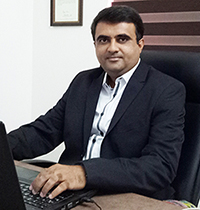You might think that education ends when you earn your degree in college. But for most licensed professionals, learning starts after, especially for nurses.
Medicine is an evolving discipline. The practice for the treatment of diseases might change with medical innovations in the future. Also, new conditions might arise as time goes by.
Continuing Medical Education in the United States
Nurse practitioner continuing education is mandatory in most states. The reason is to equip nurses with the proper skills to do their job well. It is also to assure the public that licensed nurses who are practicing can address your health concerns effectively.
The field of medicine has established Continuing Medical Education (CME) to uphold the level of standards for medical professionals. It specifies a certain number of hours of learning to maintain your license. The required hours are as follows:
- 1 CME (continuing medical education) = 1 contact hour
- 1 CEU (continuing education unit) = 10 contact hours
Contact hours represents an hour of active instruction a student receives. The requirement is different for every state.
But whether you are required or not, is continuing education that necessary? Here are four reasons why continuing education is vital for your nursing career.
It Keeps You Up to Date
Nurse practitioner’s continuing education is more than just a requirement. These are a series of lectures that can keep you up to date with the current advancements in medical research and practices.
For example, people with diabetes are recommended drastic diets as low as 800 calories per day to lower their blood sugar into remission.
With the current update, researchers at Cambridge University found out that Type 2 Diabetes remission is now achievable with a more doable weight-loss diet. The study suggests that a 10% decrease in weight in 5 years from diagnosis can double the chances of type 2 diabetes remission.
And that is just one of the things you can learn when you are updated.
It Makes You More Marketable
With more skills, you are more marketable as a professional. There are minimum requirements for specific jobs.
However, those with the minimum requirements are not always the ones who get hired or promoted. In a lucrative position, the candidates that stand out are the ones who get the job. Continuing education in your resume will give you that edge.
Chances of a Higher Salary from a Promotion
Speaking of promotion, employees who display the commitment and the additional capability to do better will inevitably get promoted. By applying the things you learned in your continuing education, you have better chances of getting promoted.
And when you get promoted, you get a higher salary! It is an investment in both your capabilities and your ability to earn.
Other Options for a Career Transition
In the medical field, you need to be competent as the times are changing. Not everyone has the expertise to handle modern practices.
It is your edge when you are looking for other options for a career transition, especially if you feel like you are stuck in your present job. Your professional competence, coupled with your continuing education, can impact your search for better opportunities.
Thus, you cannot afford to limit yourself to just the minimum CME for your nursing career. If you find a nurse practitioner’s continuing education that interests you, feel free to enroll in them. Who knows, it might be the ticket to your dream job.

